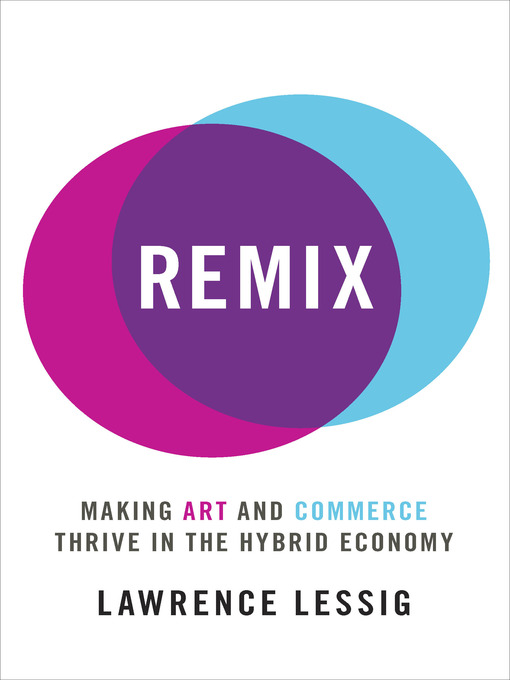
Remix
Making Art and Commerce Thrive in the Hybrid Economy
فرمت کتاب
ebook
تاریخ انتشار
2008
نویسنده
Douglas M. Bakerنویسنده
John Marinoنویسنده
Douglas M. Bakerنویسنده
John Marinoنویسنده
Lawrence Lessigشابک
9781440634628
کتاب های مرتبط
- اطلاعات
- نقد و بررسی
- دیدگاه کاربران
نقد و بررسی

August 25, 2008
Should anyone besides libertarian hackers or record companies care about copyright in the online world? In this incisive treatise, Stanford law prof and Wired
columnist Lessig (Free Culture
) argues that we should. He frames the problem as a war between an old “read-only” culture, in which media megaliths sell copyrighted music and movies to passive consumers, and a dawning digital “read-write” culture, in which audiovisual products are freely downloaded and manipulated in an explosion of democratized creativity. Both cultures can thrive in a “hybrid” economy, he contends, pioneered by Web entities like YouTube. Lessig’s critique of draconian copyright laws—highlighted by horror stories of entertainment conglomerates threatening tweens for putting up Harry Potter fan sites—is trenchant. (Why, he asks, should sampling music and movies be illegal when quoting texts is fine?) Lessig worries that too stringent copyright laws could stifle such “remix” masterpieces as a “powerful” doctored video showing George Bush and Tony Blair lip-synching the song “Endless Love,” or making scofflaws of America’s youth by criminalizing their irrepressible downloading. We leave this (copyrighted) book feeling the stakes are pretty low, except for media corporations.

November 1, 2008
Lessig (law, Stanford Univ. Law Sch.; "Free Culture: The Nature and Future of Creativity") assesses America's copyright laws in the context of online content, e.g., the Read Only (R/O) and Read/Write (R/W) transmission and production of artistic and cultural content. Read Only characterized the passive transmission of culture through the 1900s, while Read/Write has characterized the production of culture in the 19th centuryand, now, the late 20th and early 21st centuriesallowing for active and collective making and remaking of content. Jumping into the copyright morass, Lessig promulgates a hybrid model, set within the context of both a sharing economy and a commercial economy, whereby sharing communities can be augmented with commercial designs. In the end, he argues for a future in which all three models exist. Similar treatment of sharing economies can be found in Dan Tapscott and Anthony Williams's "Wikinomics: How Mass Collaboration Changes Everything". Recommended for academic libraries; some larger public libraries may wish to acquire as well.Jim Hahn, Univ. of Illinois Lib., Urbana, IL
Copyright 2008 Library Journal, LLC Used with permission.

























دیدگاه کاربران